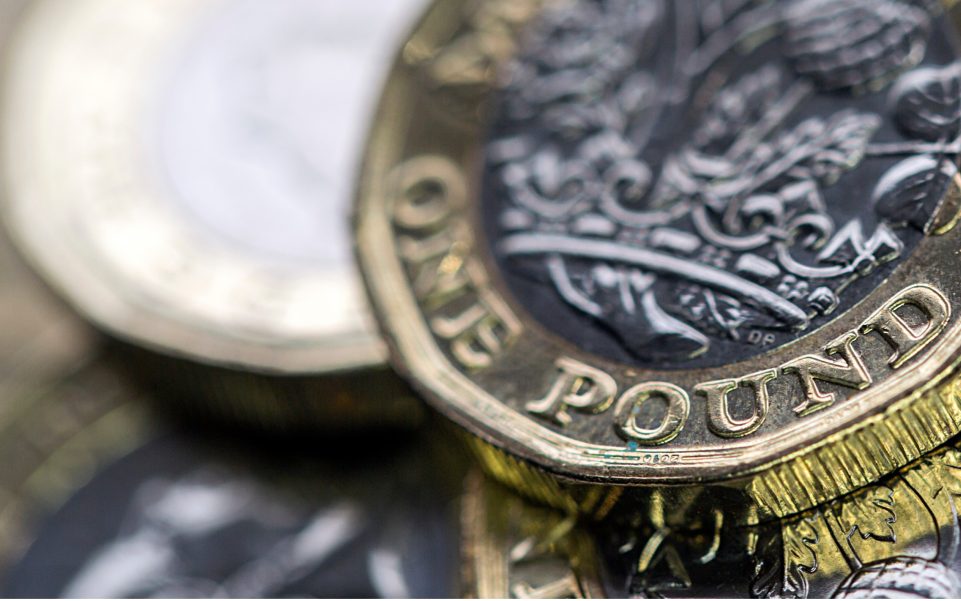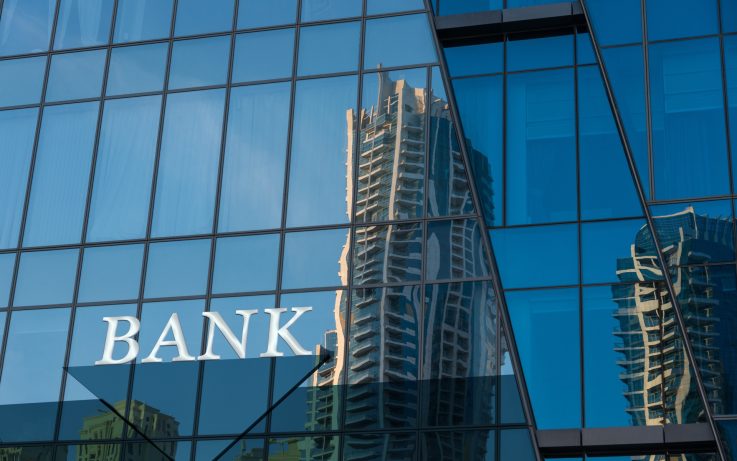Economy of the United Kingdom

Britain is one of the world’s leading powers. It is strong not only politically, but also economically. It has large-scale manufacturing, a solid banking sector, mining, and much more. The British do not put all their eggs in one basket, but systematically develop all the industries that can strengthen the stability of the country. Today we will tell you what makes up the UK economy and what makes it so strong.
Formative history
The development of the English economy holds on two pillars: the Industrial Revolution and the creation of the British Empire. There were other factors such as:
- Protectionism towards domestic producers;
- Development of railway and sea routes;
- A balanced tax policy.
Still, the importance of industrialisation and colonisation can hardly be overestimated.
Replacing manual labour with machine labour increased productivity many times over. And the replenishment of the treasury with finances from overseas territories gave money to realise all this. Without justifying the colonial policy, we note that almost all European countries — Spain, Portugal, France — were engaged in the same. However, as history has shown, they failed to fully utilise the capital that fell on their heads. It can be concluded that the British economy flourished not only thanks to money, but also thanks to people who were able to conduct a competent financial policy.
Of course, England has also had its hard times. The Great Depression of the 1930s and the post-war devastation of the 1940s did not spare it. The national debt at that time was twice as high as GDP, and the country had to introduce ration cards so that people could somehow survive. The Marshall Plan money, which the British government allocated to the Common Good Programme, helped the country survive. This re-established the social sphere, including health, education, combating unemployment and raising the general standard of living.
What does the British financial system consist of?
Stock Exchange
The London Stock Exchange is the fifth largest in the world and the second largest in Europe. On the continent, it is surpassed only by Euronext, which is the result of a merger of four European exchanges. Even with this in mind, the London Stock Exchange still outperforms its main competitor in some areas, such as the number of companies on the quotation list.
Insurance exchange
Lloyd’s of London is one of the oldest and largest insurance exchanges in the world. It appeared at the end of the XVII century and was at that time not even an office, but just a coffee house where sailors gathered to exchange news and at the same time insure their ships and cargo. This became one of the specialities of the establishment, and in time it grew into a private club for very respectable shipowners. Later, insurance companies and insurance brokers were also accepted there, and the subject of transactions became not only sea vessels, but also many other things, such as real estate.
Banks
In the banking sector, the so-called ‘big four’ rule the roost: HSBC, Barclays, Lloyds Banking Group and NatWest Group. But there are also branches of foreign banks, which are no less popular. Conversely, some banks formally registered in London operate in foreign countries without even having branches in the country itself. All this favourably affects the economy of the state, making it stable and mobile at the same time.
Trade and international relations
Britain’s total international trade in 2022 was £1.72 trillion. Exports and imports are almost in balance at £815bn and £902bn respectively. The main partners in this are the US, Germany, China and the Netherlands. It’s not just goods that are being sold, but also services. These are mainly the financial instruments described above. In addition, it is worth noting tourism, transport and telecommunications.
Investment is another important aspect of international relations. The country both receives them and invests in foreign production. The closest relationship here is with the US. In 2021, for example, the States accounted for about a third of all English investment for that year: 34 per cent of the incoming and 26 per cent of the invested. In second place is the Netherlands, but here the figures are much more modest. For the same year 2021 it was 11% of incoming and 8.8% of outgoing investments from the total.
Of course, when talking about international trade relations, one cannot fail to mention the participation in the European Union and the exit from it, which excited everyone. Naturally, the first year after Brexit was quite difficult. Companies working on exports and imports have experienced serious shocks due to the radically changed rules. However, the British hope that in the long term it will give a new impetus to the economy and support domestic producers and domestic consumption.
Energy
It would seem that having large reserves of oil, natural gas and coal, the country should not need foreign resources, but rather sell the surplus abroad. Nevertheless, imports of primary energy sources exceed exports.
It is worth noting that Britain is now actively developing renewable energy sources — wind and solar power plants. However, they are too dependent on the vagaries of the weather to expect stable and predictable electricity generation.
The United Kingdom has eight nuclear power stations with 15 nuclear reactors. There were originally more, but the obsolete designs are being phased out.
Mining
The UK is rich in minerals. This is largely due to the fact that it also owns the shelf at the bottom of the North Sea, where there are large deposits. This makes the UK Europe’s second largest oil reserve and fourth largest natural gas reserve.
Coal plays an equally important role. In the 18th and 19th centuries, its extraction, processing and export were one of the main driving forces not only of the English economy, but also of the industrial revolution that was taking place at that time. There are a total of six major coal basins in the country. Most of the mines have long since closed, but Britain is still fully self-sufficient in coal, although it has long since fallen out of the top ten leaders in the production of this fuel.
The UK is also a major supplier of clay, including kaolin, which is used to make porcelain. In contrast, metal mining is very modest, as reserves are severely depleted. Although small quantities of lead, tungsten, silver and gold are still mined on the islands.
Industry
Birmingham, Liverpool, Manchester — these are major industrial centres. And there are quite a lot of such cities in the United Kingdom, as industry in the country has historically been very well developed and now remains at a fairly high level.
Processing industry
The UK is heavily involved in the extraction of its minerals, as well as importing them from abroad. Therefore, a weighty sector of the economy is accounted for by businesses that make finished products from primary raw materials. These include:
- Oil and gas industries. These industries are mainly located in Scotland, as Britain’s main oil and gas deposits are located in the North Sea;
- Metallurgical industry. Ferrous metallurgy is mainly developed, as the country is rich in coal, iron ore and limestone, while non-ferrous metallurgy is mostly based on the processing of scrap metal;
- Chemical industry. This again includes petrochemicals, but, in addition, the country also has developed paint and varnish production, synthesis of fertilisers, pharmaceuticals, production of household chemicals and other areas.
These areas make a major contribution to the UK economy.
Mechanical engineering
It is the largest industry in the UK. It employs a quarter of all professionals working in the industry. The predominant industry is transport engineering — this includes everything from aeroplanes to the world’s most popular JCB backhoe loaders.
Main areas of focus:
- Automotive engineering. In addition to purely British brands such as Bentley, Rolls-Royce or Land Rover, there are also factories of Chrysler, Ford, Nissan and other automotive giants. Buses, lorries, rubbish trucks and other types of vehicles are produced;
- Aviation engineering. Here they are able to produce both small helicopters and space satellites, as well as aeroplanes of different classes and components for them. The products are intended for both civilian and military markets;
- Military-industrial complex. Characterised by a wide range of products, from missiles to submarines. Britain is the second largest exporter of arms in the world. Most of it goes to the Middle East.
Light industry
The most important area here is textiles. Numerous weaving mills were already operating on the islands in the 18th and 19th centuries, and with automation, production has become even more extensive.
Agriculture
Traditionally this has included animal husbandry, farming and fishing. It cannot be said that agriculture plays a major role in the UK economy. Much of the food still has to be imported from abroad. However, the government supports farmers and provides subsidies for local produce.
Employment of the population
The employment rate in the country is 76 per cent of the population and unemployment is only 3.8 per cent. The remaining people are those who, for various reasons, are not looking for work. The average monthly salary, after deducting income tax, is £1,170. In London it will be higher at around £2,000.
FAQs about the British economy
Which part of the United Kingdom generates the most revenue?
As you may remember, the country is made up of four parts: England, Scotland, Northern Ireland and Wales. The biggest contributor is, of course, England. It brings the state as much as 86% of GDP, while the success of the other parts of the country looks quite modest: Scotland – 7.4%, Wales – 3.4%, Northern Ireland – 2.3%. But this is not surprising! After all, it is in England that London is located, which provides a significant part of the income.
What is the standard of living in the UK?
The standard of living in the UK is traditionally high and comfortable. The social sphere is quite well developed. All this makes the country attractive for immigration. For many years this has been facilitated by the absence of borders with the European Union. During this time, many foreigners, especially from Eastern Europe, managed to move to the UK. After Brexit, it was even necessary to introduce a separate visa category for such citizens.
Unfortunately, not everyone comes to Britain to become a working member of society. Some hope to live on benefits. This problem became particularly acute during the influx of refugees. They became one of the reasons for the country’s withdrawal from the European Union — being in the non-aligned status, the state can decide for itself whom and in what quantities it is ready to accept.
However, the UK still welcomes qualified people, wherever they come from. The main thing is to be hardworking and eager to integrate into society. If a person is willing and able to add value to the UK economy, all doors will be open to them.
What plays a key role in the British economy?
The biggest role is played by monetary operations — banking services, insurance, consulting, brokerage firms. This sector accounts for 27.7 per cent of GDP.





